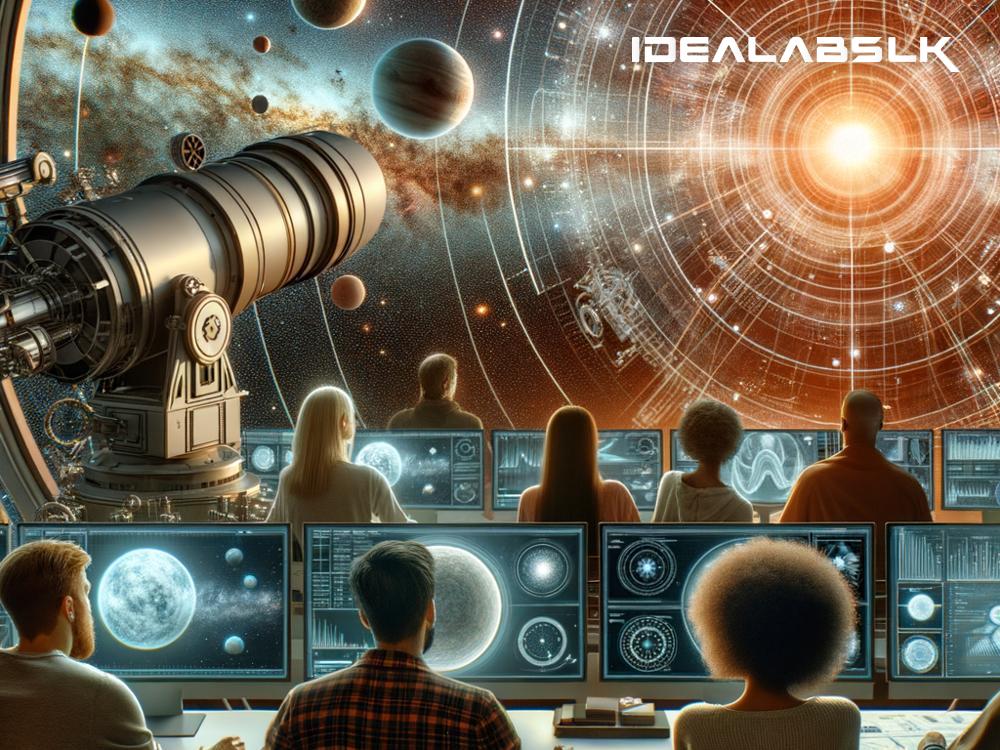Title: Gazing Beyond: How Exoplanet Discoveries Will Expand Our Universe by 2024
As human beings, the endless expanse of the universe has always intrigued us. It's like standing on the shore of an ocean, gazing out into the vastness, and wondering what lies beyond. Every once in a while, we take a step into the water, discovering something new that reshapes our perception. One of the most thrilling aspects of our exploration is the discovery of exoplanets, which are planets beyond our solar system. By 2024, the revelations concerning these distant worlds are expected to dramatically alter our understanding of the cosmos. Here’s how.
A New Family Photo of Planets Imagine flipping through a cosmic photo album filled not just with pictures of our solar system's planets but with snapshots of exoplanets from distant corners of the galaxy. With advancements in technology by 2024, we'll have identified even more exoplanets, each unique and telling its own story. This broadens our planetary family, showing us the diversity of worlds out there. Some might resemble Earth, with conditions that could support life, while others could be gas giants or icy worlds, unlike anything in our solar system. This knowledge encourages us to redefine what we consider the "norm" in planetary systems.
Rewriting the Life Manual The biggest question that flickers through our minds when we think of exoplanets is, "Is there life out there?" By 2024, the discovery of exoplanets in the habitable zone (the Goldilocks zone where conditions are just right for life) could offer new clues. Finding planets with water, appropriate temperatures, and an atmosphere could heighten the probability of life. Even if it's not intelligent life, microbial life would revolutionize our understanding of biology and reaffirm that life in the universe might be more common than rare.
Stellar Chemistry: A New Chapter Exoplanets orbit stars that are as varied as the planets themselves. By 2024, we will have a better understanding of how these stars' compositions affect their planets. Do certain types of stars harbor certain kinds of planets more often? How does the death of a star impact its planetary system? Discoveries in this area could rewrite the textbooks on how planetary systems form and evolve, offering insights into the future of our solar system as well.
Testing Our Cosmic Theories Every new exoplanet discovery serves as a test of our existing astronomical theories. By observing the vast array of planetary systems, we challenge our models of planetary formation, migration, and composition. By 2024, anomalies and outliers among these exoplanets could lead us to refine or even overhaul our theories, pushing the boundaries of our cosmic knowledge. It's like solving a puzzle but finding out midway that the pieces lead to a different picture than what we initially imagined.
The Technology Leap None of this exploration would be possible without leaps in technology. By 2024, new instruments, telescopes, and possibly even space missions will have come online. These advancements will provide more detailed observations of exoplanets, allowing us to analyze their atmospheres, study their weather, and perhaps even map their surfaces. Imagine being able to "see" a detailed portrait of a planet hundreds of light-years away. This could lead to the identification of exoplanets that are not just habitable but potentially inhabited.
A Galactic Perspective Shift Perhaps the most profound change will be philosophical. Discoveries by 2024 will likely further shrink our cosmic significance in the vast universe. Knowing we are just one of countless worlds might feel humbling, but it can also unite humanity with a sense of purpose and curiosity. It encourages us to look beyond our differences and work together as citizens of the universe.
Conclusion: Broadening the Horizon As we stand on the brink of 2024, the discoveries of exoplanets in the coming years promise to fundamentally change our understanding of the universe. This exploration is not just about finding new worlds; it's about understanding our place among them. It teaches us that the more we learn, the more we realize how much is still undiscovered. As we continue to push the boundaries of the known universe, we pave the way not just for scientific advancement, but for a broader comprehension of our existence within this vast cosmic ocean. The future of exoplanet discovery holds endless possibilities, and by 2024, we will have taken significant strides in uncovering them.

